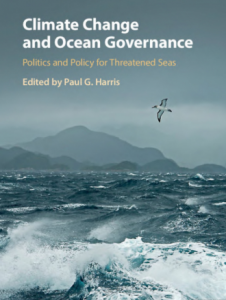Chapter: January 2019
Planning the farmyard. Gender implications

By: Shortall Sally
Abstract
The Routledge Companion to Rural Planning provides a critical account and state of the art review of rural planning in the early years of the twenty-first century. Looking across different international experiences – from Europe, North America and Australasia to the transition and emerging economies, including BRIC and former communist states – it aims to develop new conceptual propositions and theoretical insights, supported by detailed case studies and reviews of available data. The Companion gives coverage to emerging topics in the field and seeks to position rural planning in the broader context of global challenges: climate change, the loss of biodiversity, food and energy security, and low carbon futures. It also looks at old, established questions in new ways: at social and spatial justice, place shaping, economic development, and environmental and landscape management. Planning in the twenty-first century must grapple not only with the challenges presented by cities and urban concentration, but also grasp the opportunities – and understand the risks – arising from rural change and restructuring. Rural areas are diverse and dynamic. This Companion attempts to capture and analyse at least some of this diversity, fostering a dialogue on likely and possible rural futures between a global community of rural planning researchers. Primarily intended for scholars and graduate students across a range of disciplines, such as planning, rural geography, rural sociology, agricultural studies, development studies, environmental studies and countryside management, this book will prove to be an invaluable and up-to-date resource.
Citation: Shortall, S. (2019). Planning the farmyard. Gender implications. In M. Scott, N. Gallent, & M. Gkartzios (Eds.), The Routledge Companion to Rural Planning. Routledge.
Fairweather Friends? Canada–United States Environmental Relations in the Days of Trump and the Era of Climate Change

By:Stoett, Peter
Abstract
The Trump administration has certainly marked a radical departure in some (though not all) of the policy orientations familiar to observers of the U.S.–Canada relationship. An increasingly important question, then, is whether this relationship, on the whole cordial if viewed from within the limited prism of government-to-government relations, will become increasingly strained as climate change takes a greater physical, financial, and emotional toll on the continent. Is the unique relationship as resilient as preceding decades of cooperation and collaboration would suggest, or is its fragility gradually increasing as we become more aware of, and yet proceed to take limited steps to mitigate, the impact of climate change? Looking beyond the currently heated Ottawa–Washington dynamic, most of the policy collaboration shared by the two countries has been taking shape at the subnational level, especially in fields related to biodiversity conservation, migratory species, resource sharing, water management, and other areas. Even these relationships will be tested by the waters to come.
Citation: Stoett, P. (2019). Fairweather Friends? Canada–United States Environmental Relations in the Days of Trump and the Era of Climate Change. In Canada–US Relations (pp. 105–123).
The Plastic-Climate nexus. Linking science, policy and justice

By: Vince Joanna & Stoett Peter
Abstract
Climate Change and Ocean Governance brings together authors from political science and cognate disciplines to examine the political and policy dimensions of climate change for our oceans. The environmental, social and economic consequences of oceanic change present tremendous challenges for governments and other actors. New and innovative policies for governing oceans and seas – and for managing vital marine resources – have never been more important. Existing national and international institutions for marine governance that were created when oceanic conditions were relatively static may not be adequate for a future characterized by continuous oceanic change. Responses to oceanic change will result in winners and losers, and thus will involve politics in all its manifestations. This book reveals the unavoidable connections between climate change, the oceans, and questions of governance. It provides valuable lessons for researchers, policymakers and activists concerned about governing oceanic change into the future.
Citation: Vince, J., & Stoett, P. (2019). The Plastic-Climate nexus. Linking science, policy and justice. In P. G. Harris (Ed.), Climate Change and Ocean Governance: Politics and Policy for Threatened Seas. Cambridge University Press.
